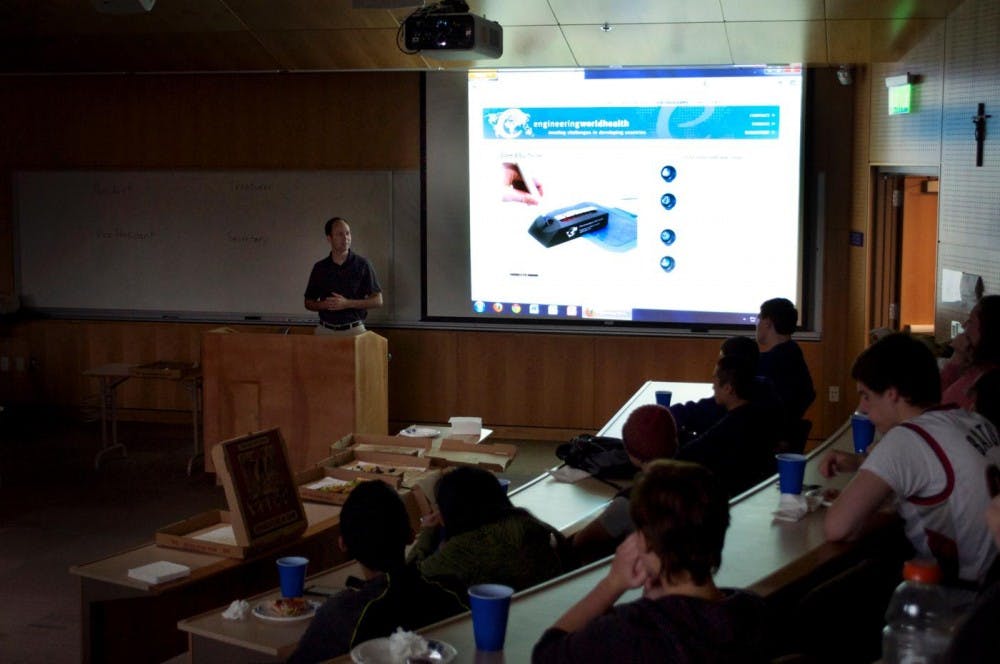Engineering World Health members aid healthcare in developing countries
(Talley Carlston -- The Beacon)
By Kathryn Walters Staff Writer walters14@up.edu
This fall, UP added a new club, Engineering World Health, which allows engineering students to apply concepts they learn in the classroom to make a difference to healthcare in developing countries.
Engineering World Health is a nonprofit organization whose mission is to improve health services in developing parts of the world. The organization sends engineers to repair and install health services equipment such as X-ray machines, as well as train locals to maintain and manage the equipment.
"It shows students how technology helps people in health care," professor of engineering and club adviser Joseph Hoffbeck said. "It's a practical perspective instead of a theoretical approach."
EWH has many university-run chapters across the U.S. where college engineering students can use the skills they learn to aid this process.
"It's an enormous impact with little effort," said Hoffbeck. "It's a good match for the mission of the University."
The club chapter was funded by UP alumnus David Chamberland. He graduated from UP in 1994 with a degree in electrical engineering and went on to medical school. He now has his own private practice in Medford, Ore.
Chamberland said his years at UP were very formative, and this made him want to contribute to UP.
"The education that I got with the engineering program was very valuable, and the character formation was very valuable," Chamberland said. "It's been a big help as I've gone through my professional and personal lives."
Chamberland proposed the idea of a program that would integrate engineering with science skills and when Sharon Jones, dean of the Shiley School of Engineering suggested Engineering World Health, he supported it.
"I hope that it potentially inspires students' creativity and that they come up with technology to help someone," Chamberland said. "This gives them an avenue to further develop their ideas."
Students can make a difference through the new Engineering World Health club by assembling electro-surgery unit tester kits provided by the organization, which test electro-surgery tools to ensure that they properly function or if they need further repairs.
"It's good to know that I could actually help these people," sophomore and club secretary Maldeep Kang said.
Kang, who lived in India for four years as a child, saw firsthand the need for better healthcare in developing countries.
"I saw that good healthcare was only open to the upper class," he said. "You had to go to a private hospital to get good healthcare."
In addition to making the kits, students in the club can also attend Engineering World Health Summer Institutes. The organization sends about 50 young engineers each year to underdeveloped countries where they install and repair hospital equipment, train staff and perform other engineering duties. Students can also enter a design competition that is directed at the needs of developing countries' healthcare.
"We're trying to get as many people involved as we can," junior and club president Kyle Mauer said.
(Talley Carlston -- The Beacon)








